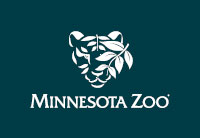 Jeff Muntifering, Conservation Biologist at the Minnesota Zoo, is in Namibia where he works with the Namibian government, a local conservation organization (Save the Rhino Trust), tourism operators and local communities to conserve the world’s last truly wild population of black rhino. Here is his latest update from the field…
Jeff Muntifering, Conservation Biologist at the Minnesota Zoo, is in Namibia where he works with the Namibian government, a local conservation organization (Save the Rhino Trust), tourism operators and local communities to conserve the world’s last truly wild population of black rhino. Here is his latest update from the field…
Illegal wildlife crime represents one of the greatest conservation challenges of our time with poaching threatening to drive some of the world’s most iconic animals to extinction. Roughly three rhino are killed every day to feed the demand in Asia for the use of their horn. This is cause for serious concern especially for the critically-endangered black rhino.
 While the dominant response to the crisis has been increasing military-style law enforcement, Namibia continues to champion community-based strategies to combat poaching. In general, we believe that law enforcement will be much more successful if we can improve the value local people attach to conserving rhino. Conversely, if local people do not see any value in keeping rhino alive, law enforcement will likely be limited to small, short-term success – if any at all.
While the dominant response to the crisis has been increasing military-style law enforcement, Namibia continues to champion community-based strategies to combat poaching. In general, we believe that law enforcement will be much more successful if we can improve the value local people attach to conserving rhino. Conversely, if local people do not see any value in keeping rhino alive, law enforcement will likely be limited to small, short-term success – if any at all.
In this light, our work in Namibia focuses on finding creative ways to help local people believe that keeping rhino alive will improve their lives in some way, shape or form. We have found that tourism that carefully and creatively combines rhino monitoring by local trackers with a true wilderness experience not only improves direct rhino protection on the ground but can also generate significant income to the broader community. For  example, one lodge that focuses on rhino tracking tourism has produced monthly rhino sightings for roughly 20% of the region’s rhino population. In addition, the tourism income not only finances the team’s operations but also has provided significant cash payments to neighboring communities for more than a decade. Not a single rhino has been poached in this rhino tourism area.
example, one lodge that focuses on rhino tracking tourism has produced monthly rhino sightings for roughly 20% of the region’s rhino population. In addition, the tourism income not only finances the team’s operations but also has provided significant cash payments to neighboring communities for more than a decade. Not a single rhino has been poached in this rhino tourism area.
Last year, another rhino tourism activity led by community rangers was initiated. Rhino sightings in the area quadrupled and the activity produced over US$40,000 of income over a 6 month period. No rhino were poached. We hope to expand this model to other communities in the near future to help keep rhino poaching low and local support on a high.




Get Social